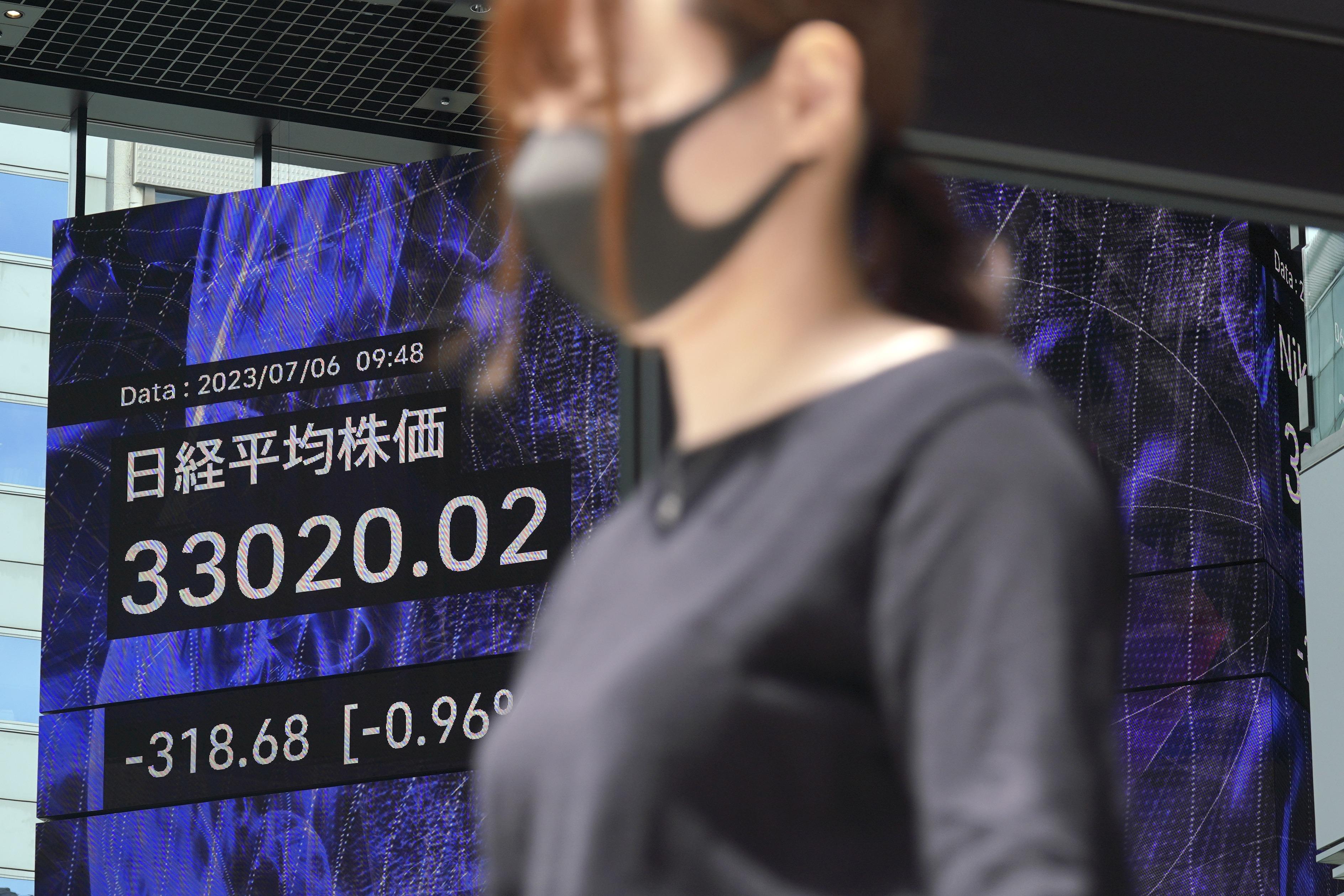 A person walks in front of an electronic stock board showing Japan's Nikkei Stock Average at a securities firm July 6, 2023, in Tokyo. (PHOTO / AP)
A person walks in front of an electronic stock board showing Japan's Nikkei Stock Average at a securities firm July 6, 2023, in Tokyo. (PHOTO / AP)
TOKYO - Japan's nominal base salary grew at the fastest pace in 28 years in May, government data showed on Friday, adding fuel to the debate over when the central bank will unwind its ultra-loose monetary stimulus.
Global financial markets have been closely watching Japan's wage data, as Bank of Japan Governor Kazuo Ueda regards pay growth as a key gauge to consider in deliberations about a shift in policy.
Japan's largest labor organization Rengo said on Wednesday that major companies had agreed to average pay hikes of 3.58 percent this year, the highest since 3.9 percent in 1993
Regular wages rose 1.8 percent in May from a year before, labour ministry data showed, the biggest gain since February 1995. The strong base pay growth boosted worker's total cash earnings, or nominal wages, by 2.5 percent in May, after a revised 0.8 percent increase logged in April.
"If inflation stabilises around 2 percent and nominal wages accelerate to 3 percent to 3.5 percent, the condition could be set for the BOJ to dismantle monetary easing framework from the Kuroda era," said Hisashi Yamada, economist and Hosei University professor.
ALSO READ: Japan’s nuke water dumping plan angers HK residents
Japan's largest labor organization Rengo said on Wednesday that major companies had agreed to average pay hikes of 3.58 percent this year, the highest since 3.9 percent in 1993.
The result of the spring labour talks, known as "shunto", will be increasingly seen in government wage statistics over the next few months, a labor ministry official said.
Still, real wages contracted 1.2 percent in May, the 14th consecutive month of year-on-year declines, as relentless consumer inflation outstrips nominal pay growth and squeezes households' buying power. Analysts say the real wages will remain in contraction for the rest of 2023.
Separate data on Friday showed Japanese household spending fell 4.0 percent in May from a year earlier, down for a third month and more than the median market forecast for a 2.4 percent decline. Spending on a variety of items from food to clothes to transportation were down, the data showed.
ALSO READ: IAEA: Report not endorsement of Japan's nuke water discharge plan
On a seasonally adjusted month-on-month basis, household spending was down 1.1 percent, versus an estimated 0.5 percent gain to mark a fourth month of decline.
"The effects of consumer price inflation are becoming more prevalent in the household spending, offsetting the boon to Japan's consumption from eased coronavirus restrictions," said Takumi Tsunoda, senior economist at Shinkin Central Bank Research Institute.
In an interview with the Nikkei newspaper published on Friday, BOJ's Deputy Governor Shinichi Uchida said the central bank must support the economy with easy policy.
Taro Saito, executive research fellow at NLI Research Institute, said next year's spring labour talks are expected to yield wage growth mostly equivalent to this year's, because of the longer-than-expected price inflation and labour shortage.
"But the biggest risk to the scenario is if the economy itself remains robust until next spring, given the wobbly global economic conditions," he said.
Reporting by Satoshi Sugiyama and Kantaro Komiya; Additional reporting by Tetsushi Kajimoto; Editing by Sam Holmes


